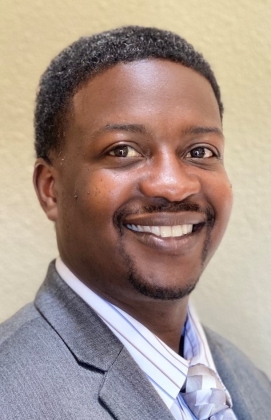In the News
News
Dec 06, 2020
Marin County's Probation Department in the Age of Social and Restorative Justice
Dec 06, 2020
By Marlon Washington

As the new chief probation officer for Marin County, I am excited to join a probation team that is well-regarded statewide amongst its peers, as well as a local criminal justice system that is cohesive and focused on constant improvement. I truly appreciate the welcome and support I have received in my first 90 days. Joining and leading a department during a pandemic, not to mention a period of social unrest and major legislative changes, is totally out of the norm but our team has been up to the task of adjusting to this new normal.
Upon arrival, I was encouraged to discover that my new department had already taken steps to begin a dedicated process wherein individual team members are able to share life experiences in order to increase discussion and understanding amongst staff of subversive racism and systemic inequality. Active workgroups are in place to review our department policies and practices through this lens and we are committed to improvement.
Social unrest aside, it is a dynamic time for criminal justice in California with potential legislation and calls for reform at levels that rival the changes we saw in 2011 with the Public Safety Realignment Act. Some of the top issues for our criminal justice system that involve the Probation Department are:
Bail Reform and Pre-Trial Detention (SB 10): In 2018, the Legislature passed SB 10, which, in a nutshell, would have eliminated cash bail in California. SB 10 was put on hold pending the outcome of the recently defeated Proposition 25, which means that the bill will not go into effect and cash bail will remain. While Proposition 25, which was backed by civil rights groups and Democratic leaders, may have been defeated, it is clear that changes around the way we detain suspected criminals are still possible. According to the state Board of Community Corrections, as of June 30th, county jails in California held approximately 61,000 inmates of which only 29% had been convicted of crimes. In Marin County, with the threat of COVID-19, over one hundred people in pre-trial status were released to Probation’s developing pre-trial program. These defendants received an assigned probation officer, accountability orders and check-in directives. In many cases, judges ordered electronic monitoring to provide added public safety.
Our data shows that with very few exceptions, defendants on pre-trial release returned to court and did not commit new offenses while out under the monitoring of our pre-trial program. My office is committed to continuing to develop the pre-trial program to provide more services and options to defendants in pre-trial status so that they have a path to a better self as they await the outcome of their court processes.
Division of Juvenile Justice Realignment (SB 823): Over the past two decades, reform has resulted in a move away from detaining youth in state and local detention facilities. The population of these facilities, which once rose In California to nearly 20,000 youth, is now less than 25% of that number and the state has committed to realigning the Division of Juvenile Justice (DJJ) with the passage of SB 823. DJJ Realignment is a historic move to build upon the trauma-informed approaches that are necessary to keep youth in their communities to best serve and connect them to the resources they need. I strongly believe that youth should be kept within their community and custody is only appropriate when a matter of public safety or when the safety of the child cannot be managed in the community.
The population of our own juvenile hall has decreased over the years in line with the state trend. As I write this, we also have two youth in the state facility and 17 youth in secure, therapeutic facilities out of the county. Our juvenile hall is a critical piece of our system for providing safe space for youth as we find appropriate long-term placement. We are also working to establish local options for the future that can keep these youth in safe home settings that will allow them to remain close to family and services and allow our dedicated staff to continue their work directly with the youth.
The role of probation departments has been increasing over the years, and I am proud to be one of 59 chief probation officers in this state. We have been afforded the opportunity to lead dedicated, hardworking staffs to making change at individual, community and systemic levels. I take this responsibility seriously and look forward to a long career in Marin County that is filled with a sense of accomplishment and partnership.
Marlon Washington was appointed to the position of Chief in July 2020. Chief Washington has primary responsibility for the department and its administration, mission, and goals. He is a Richmond native who earned a sociology degree with emphasis in law and society at UC Davis and began his probation career in Contra Costa County as a Temporary Probation Counselor. He is active in the California Association of Probation Institution Administrators and the California Probation, Parole, and Correctional Association. He enjoys coaching, sports, traveling, spending time with family, listening to music and mentoring. He has been married to his wife Jennifer for 21 years, has a son who is a junior at Stanford University and a daughter who is a junior in high school.












